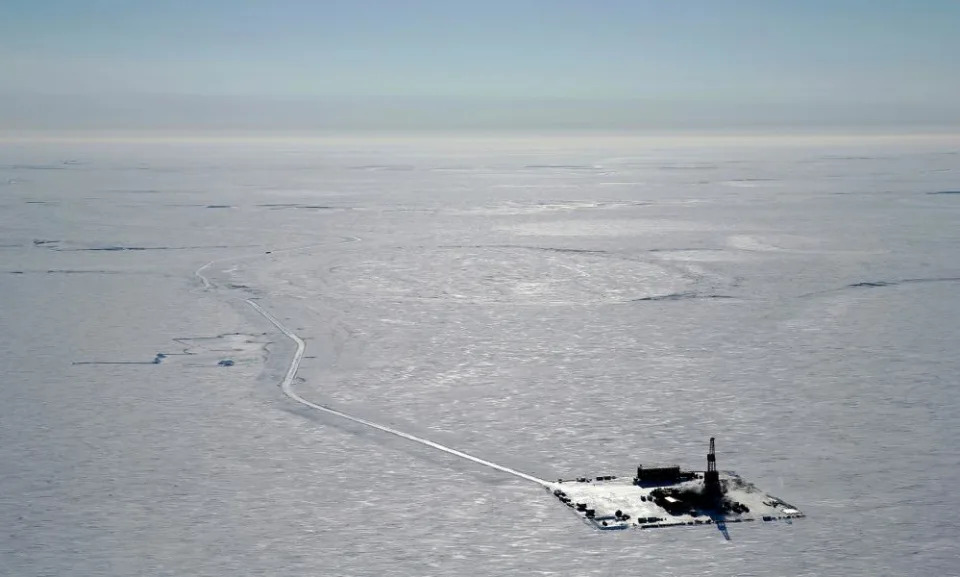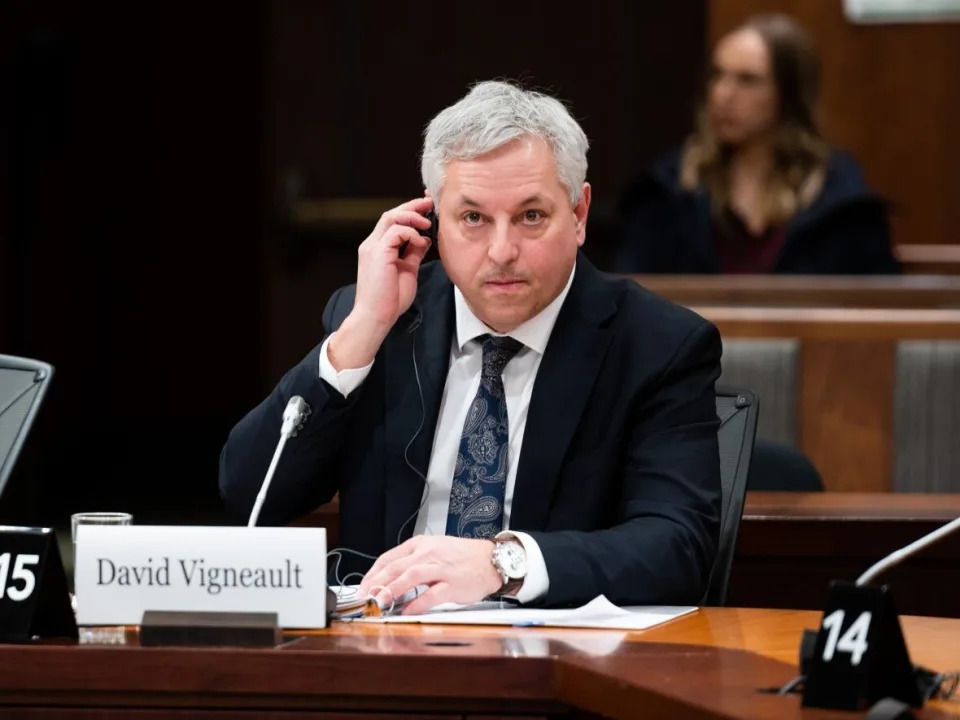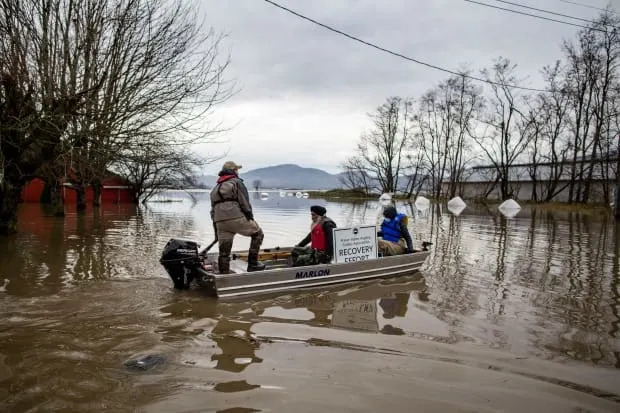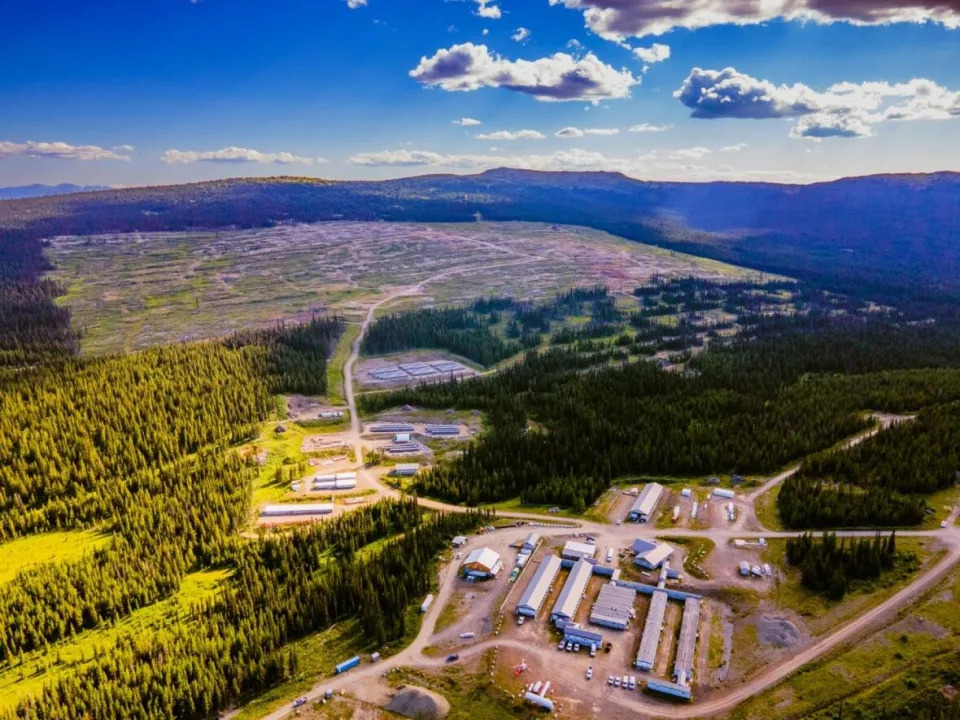Leyland Cecco in Toronto
THE GUARDIAN
Fri, 10 March 2023

Photograph: Cole Burston/AFP/Getty Images
Canada’s federal police force has opened an investigation into a controversial unit tasked with overseeing environmental protests, following hundreds of complaints that officers used excessive force, disregarded court orders and violated protesters’ rights.
Related: Giving the middle finger is a ‘God-given right’, Canadian judge rules
The Civilian Review and Complaints Commission, a watchdog arm of the Royal Canadian Mounted Police, said on Thursday it would examine the activities of the community-industry response group, or C-IRG, based in British Columbia.
During the Fairy Creek blockade against old-growth forest logging on Vancouver Island, officers with the special unit were accused of ripping off protesters’ masks to pepper-spray them and dragging them by their hair.
A British Columbia supreme court judge subsequently ruled that the exclusion zones created by the RCMP – set up to prevent media from entering certain areas of the injunction area – were unlawful.
The C-IRG was also involved in protests over the Coastal GasLink pipeline, deploying riot control officers, dogs and helicopters to dismantle blockades – and as the Guardian has previously reported, was prepared to shoot on Indigenous protesters.
The RCMP has long faced criticism for its conduct against Indigenous peoples, and in recent years has faced mounting concerns over accountability and a disregard for court orders. The C-IRG has faced accusations of harassment, racism and excessive force – allegations the unit’s leadership has denied.
The unit is currently the target of a lawsuit alleging it used “unlawful tactics” to dismantle the Fairy Creek protest, and is also linked to a broader press freedom lawsuit after RCMP officers detained two journalists reporting on police efforts to tear down blockades against the Coastal GasLink pipeline on traditional Wet’suwet’en territory.
Related: ‘I felt kidnapped’: Canada police sued for arresting photographer covering protest
The RCMP oversight body says it will assess whether the unit’s operations are consistent with Canada’s charter of rights and freedoms, as well as recently passed legislation on the United Nations declaration on the rights of Indigenous peoples. The force has said it will also ensure the unit’s actions align with recommendations from a national inquiry into missing and murdered Indigenous women and girls.
The chair of the oversight group, Michelaine Lahaie, is not part of the RCMP.
The C-IRG unit, staffed with volunteer RCMP officers, was originally formed in 2017 to help resource-extraction protests proceed by breaking up public protest and blockades. The unit has cost nearly C$50m over the past five years, according to CBC News.
The CRCC has the ability to examine the conduct of individual officers to determine if policies or training need to change, the RCMP said.
The RCMP said in a statement it had anticipated the investigation.
“We knew about the possibility for a review and have been working cooperatively to ensure that the CRCC have comprehensive access and a fulsome understanding of the C-IRG’s policies, procedures, practices, guidelines, training and deployments,” Staff Sgt Kris Clark, a media relations officer, said.
Fri, 10 March 2023

Photograph: Cole Burston/AFP/Getty Images
Canada’s federal police force has opened an investigation into a controversial unit tasked with overseeing environmental protests, following hundreds of complaints that officers used excessive force, disregarded court orders and violated protesters’ rights.
Related: Giving the middle finger is a ‘God-given right’, Canadian judge rules
The Civilian Review and Complaints Commission, a watchdog arm of the Royal Canadian Mounted Police, said on Thursday it would examine the activities of the community-industry response group, or C-IRG, based in British Columbia.
During the Fairy Creek blockade against old-growth forest logging on Vancouver Island, officers with the special unit were accused of ripping off protesters’ masks to pepper-spray them and dragging them by their hair.
A British Columbia supreme court judge subsequently ruled that the exclusion zones created by the RCMP – set up to prevent media from entering certain areas of the injunction area – were unlawful.
The C-IRG was also involved in protests over the Coastal GasLink pipeline, deploying riot control officers, dogs and helicopters to dismantle blockades – and as the Guardian has previously reported, was prepared to shoot on Indigenous protesters.
The RCMP has long faced criticism for its conduct against Indigenous peoples, and in recent years has faced mounting concerns over accountability and a disregard for court orders. The C-IRG has faced accusations of harassment, racism and excessive force – allegations the unit’s leadership has denied.
The unit is currently the target of a lawsuit alleging it used “unlawful tactics” to dismantle the Fairy Creek protest, and is also linked to a broader press freedom lawsuit after RCMP officers detained two journalists reporting on police efforts to tear down blockades against the Coastal GasLink pipeline on traditional Wet’suwet’en territory.
Related: ‘I felt kidnapped’: Canada police sued for arresting photographer covering protest
The RCMP oversight body says it will assess whether the unit’s operations are consistent with Canada’s charter of rights and freedoms, as well as recently passed legislation on the United Nations declaration on the rights of Indigenous peoples. The force has said it will also ensure the unit’s actions align with recommendations from a national inquiry into missing and murdered Indigenous women and girls.
The chair of the oversight group, Michelaine Lahaie, is not part of the RCMP.
The C-IRG unit, staffed with volunteer RCMP officers, was originally formed in 2017 to help resource-extraction protests proceed by breaking up public protest and blockades. The unit has cost nearly C$50m over the past five years, according to CBC News.
The CRCC has the ability to examine the conduct of individual officers to determine if policies or training need to change, the RCMP said.
The RCMP said in a statement it had anticipated the investigation.
“We knew about the possibility for a review and have been working cooperatively to ensure that the CRCC have comprehensive access and a fulsome understanding of the C-IRG’s policies, procedures, practices, guidelines, training and deployments,” Staff Sgt Kris Clark, a media relations officer, said.












